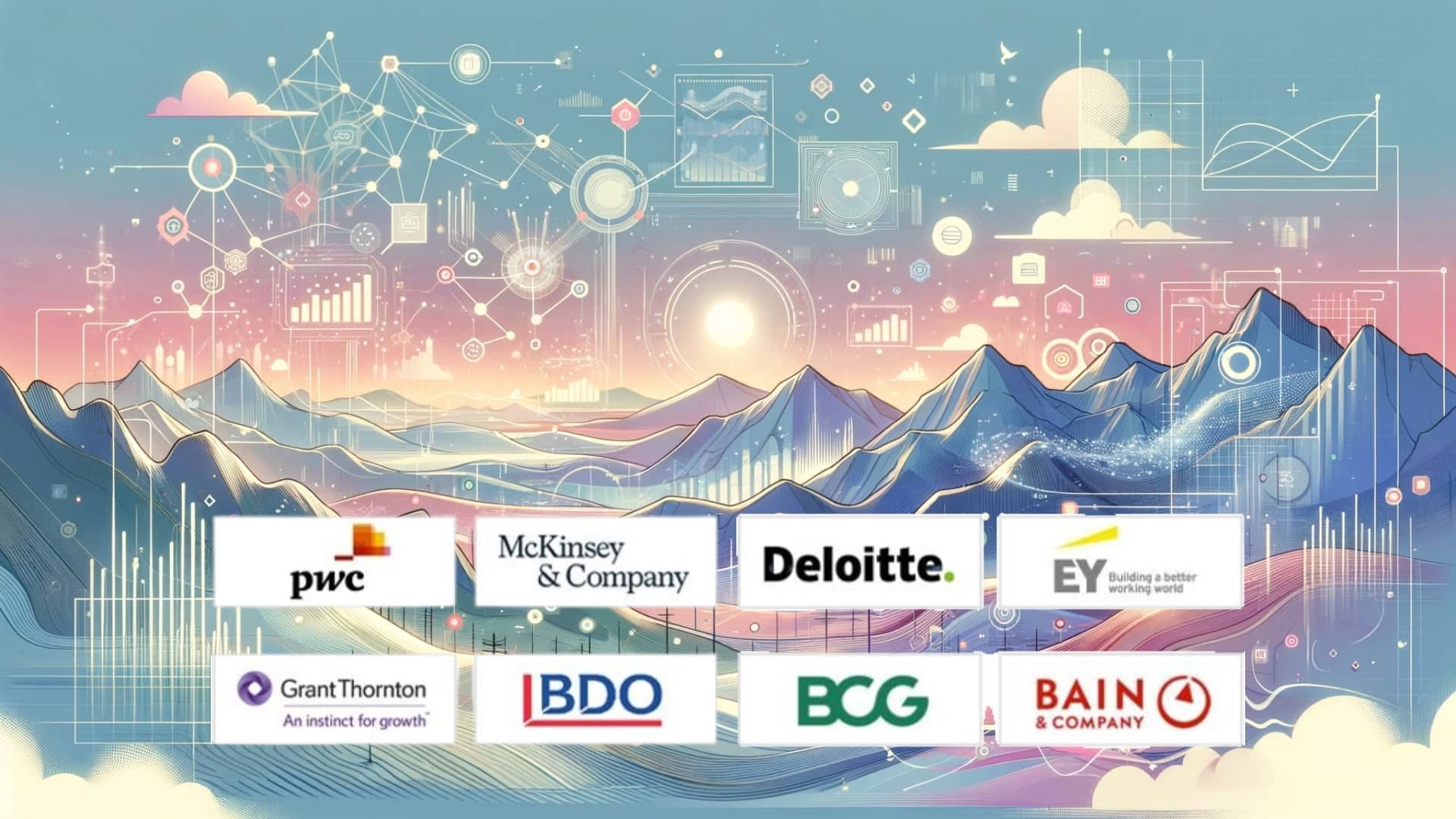Why Consulting Firms Have the Edge in Building the Smartest LLMs

In an era where data is king and insights are the realm, consulting giants stand at the forefront, wielding Large Language Models (LLMs) as their scepters. As the digital universe exponentially expands, these firms face the Herculean task of making sense of the vast amount of data they collect daily. LLMs, the crown jewels in the AI arsenal, are not just about processing language; they’re about understanding context, generating insights, and transforming business operations. With their unparalleled access to diverse, in-depth data, consulting firms are uniquely positioned to build LLMs that are not merely tools but strategic allies in navigating the complex business landscape.
But why are global consulting powerhouses betting big on building their own Large Language Models (LLMs)?
Why are global consulting powerhouses like McKinsey, Bain, Boston Consulting Group, and Deloitte betting big on building their own Large Language Models (LLMs)? These firms have recognized the transformative potential of LLMs and are leveraging their unique positioning to develop customized solutions that can automate tasks, provide deeper insights, unlock new opportunities, and enhance customer experiences across industries.
LLMs have evolved rapidly from large generic models like GPT-3 to more specialized, task-specific ones. The critical ingredient in crafting effective LLMs is data – the more in-depth, varied and relevant the data, the smarter and more useful the LLM. This is where consulting firms have an edge.
The Edge of Consulting Firms
Consulting firms sit on mountains of proprietary data from their engagements across sectors. The data isn’t just massive in scale but also incredibly diverse, granular and rich in insights about industry trends, challenges, and opportunities. These firms also have unmatched talent with deep institutional knowledge and analytical skills to identify patterns and extract insights.
This puts consulting firms in a unique position to develop custom LLMs that are not just smart, but contextually aware with real-world business insights baked in. Firms are now building proprietary models tailored to specific organizational needs.
JPMorgan developed DocLLM, an LLM designed for multimodal document understanding to enhance client services. KPMG’s KaiChat aids its consultants with proprietary data assets. PwC is collaborating with Microsoft and OpenAI to advance generative AI. EY integrated complex tax laws into its AI system to deliver instant guidance to professionals.
These LLMs have immense potential to transform how consulting firms operate. They can automate repetitive tasks like report generation and research. LLMs can provide quick and customized recommendations by analyzing client data. They can also enhance productivity and free up precious time for human consultants to focus on high-value work.
Diving into a Real Case – Bloomberg GPT
A prime example of domain-specific LLM development is Bloomberg’s proprietary GPT model. Bloomberg trained GPT on a massive dataset of financial documents and a diverse corpus of non-finance sources to equip it with broad general knowledge.
In benchmarks, Bloomberg GPT outperformed models like GPT-3 and Anthropic’s Claude in financial question answering by 5-10 percentage points. It also showed higher accuracy in summarizing earnings reports and financial filings. GPT-3’s scores suffered from lack of financial context, while Claude’s smaller size hampered performance.
Bloomberg GPT demonstrates deep understanding of complex financial language. It can generate high-quality content like reports, research notes, code and presentations. The model is integrated into Bloomberg Terminal to augment customer services like market monitoring, analysis and trading.

Predicting the Future and Applications
As consulting firms expand their LLM capabilities, we can expect models trained on data from specialized industries like healthcare, retail, manufacturing, and more. Responsible AI practices around ethics and bias will be critical as models become more powerful. Technological improvements in areas like multimodal inputs, transfer learning and edge deployment will also enable new applications.
Industry-specific LLMs have vast potential to drive innovation. In finance, LLMs like Bloomberg GPT could help detect fraud, analyze sentiments, identify growth opportunities and generate investment recommendations. Healthcare LLMs could accelerate drug discovery and improve diagnostic accuracy. Retail LLMs could optimize supply chains, create personalized promotions and enhance customer engagement.
Consulting firms are in the pole position to lead development of highly tailored LLMs with their troves of institutional data and insights. These models have immense potential to transform consulting services and deliver outsized value to clients. It will be exciting to see how clients across sectors embrace consulting firm LLMs to achieve data-driven, AI-powered breakthroughs and unlock new sources of competitive advantage. The future shaped by industry-specific LLMs that transform entire domains is closer than ever.
